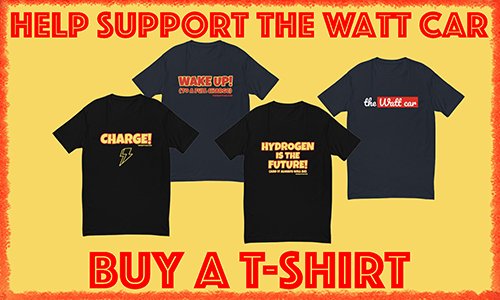Megawatt Charging System – Beginning of the End for Hydrogen?
By Edward A. Sanchez — June 15, 2022
In episode 39 of The Watt Car podcast, Phil Royle and I interviewed Rustam Kocher and Oleg Logvinov of CharIN, the international standards organization responsible for creating the Combined Charging System (CCS). Our discussion was the development of the Megawatt Charging System (MCS). At the time, MCS was only known by EV geeks, and those in-the-know about charging standards and infrastructure. As of this week, MCS will be known by a much larger segment of the general public, and especially those in the commercial vehicle segment.
At the EVS35 conference in Oslo, the near-final physical plug and port standard for MCS was shown, showcased on a Scania truck at the show.
Until the emergence of MCS, most assumed that hydrogen would be the predominant successor to diesel heavy trucks. In the podcast, Kocher said MCS was hypothetically capable of charging Class-8 trucks in as quickly as 15-20 minutes.
With a 1,250 volt and 3,000 amp max capability, the MCS plug is a potent but sizable beast. (Image © Roberto di Gento @robertvg via Twitter)
Kocher said the standard was flexible enough, that it could also be used for overnight charging to handle AC and accessory loads (HVAC, refrigerator, microwave, entertainment, etc.) on the truck, as well as fast-charge.
In addition, the MCS standard claims to have the following provisions included in the standard:
Single conductive plug
Max 1,250 volt and 3,000 amps (DC)
PLC + ISO/IEC 15118 (Plug&Charge)
Touch Safe (UL2251)
On-handle software-interpreted override switch
Adheres to OSHA and ADA (and local equivalent) standards
FCC Class A EMI (and local equivalent)
Located on left side of the vehicle, roughly hip height
Capable of being automated
UL (NRTL) certified
Cyber secure
V2X (bi-directional)
As Logvinov and Kocher discussed on our podcast, it is actually easier to implement a global DC standard than it is for AC, where there are regional voltage and utility standards that can be inadvertent impediments for adoption of a global standard. It is CharIN’s intention that MCS be a global standard.
Taken all together, hydrogen has little chance to compete, as it cannot do two-way charging, standby power, and currently has no provision or standard for contactless or automatic payment, or automated fueling connection. The time-to-fuel of 15-20 minutes puts MCS in rough time parity with diesel or hydrogen. Never mind the fact that on a well-to-wheels basis, electricity is a much more efficient fuel than hydrogen, which is an energy carrier that happens to be very energy-intensive to make.
Stay tuned to The Watt Car podcast as we intend to have Kocher and Logvinov back on the podcast to speak more in-depth about the MCS standard.
(Main image courtesy CharIN)
- Store - Podcast - Facebook - Google News - Twitter -









